Indigenous Sport Month: Time for footy codes to create opportunity for Indigenous coaches
With no coaching opportunities, too many indigenous athletes are lost to the games they love once their playing career finishes — and some of the biggest names in sport are calling for change.
NRL
Don't miss out on the headlines from NRL. Followed categories will be added to My News.
Josh Addo-Carr’s grandfather Wally was a national boxing champion who won titles in three weight divisions, yet couldn’t leave his home in Wellington without permission.
Same for the grandparents of George Rose, who had to have a note whenever they left their Walgett house, outlining what they could and couldn’t do in the town centre.
Just two generations later, Addo-Carr is one of the most recognisable faces in rugby league and has his own clothing line.
Rose runs a multimillion dollar business.
But they are exceptions to the rule.
Despite the overwhelming number of star indigenous NRL players that have created highlight reel moments for decades, not one of them is a head coach or club boss. Same in the AFL.
“The strongest stories I’ve heard is from my grandparents and what they had to go through, that pushes me to be the very best I can be because of what they were forced to overcome,” said Bulldogs winger Addo-Carr.
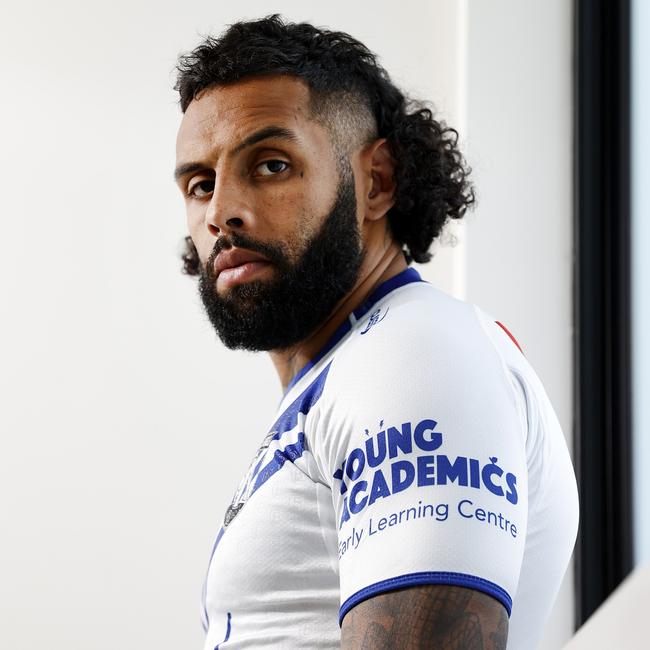
“They weren’t even allowed to leave their home town. They had to get permission to go to the shops and get food.
“My people love living off the land, and that got taken away from them.
“My grandfather was only 63 when he passed away, it was only two generations ago. People think it was ages ago, but we feel their struggle and their pain.
“Before the settlers came here, my people were happy.”
Addo-Carr’s Let’s Trot Apparel line is one of the most popular clothing brands among young NRL supporters.
Rose, a former NRL star who has become chief executive of No Limit, Australia’s biggest boxing promotional company, couldn’t see an avenue in the sport he grew up with.
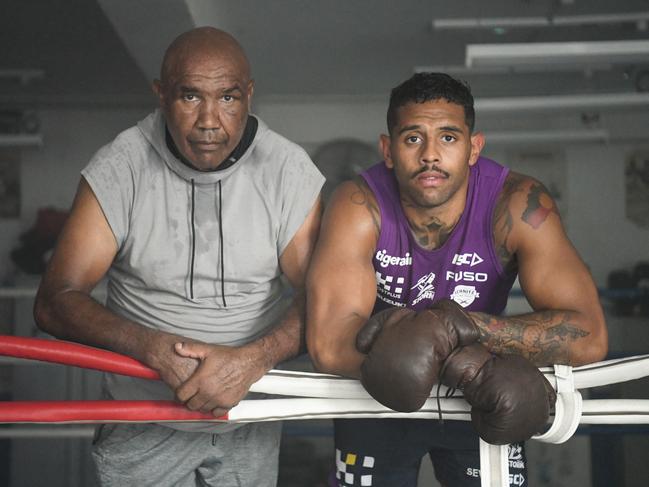
“To become a sporting executive, I had to do it on my own, in a completely different field,” Rose said.
“I’ve been in rugby league since I was four years old, played footy my whole life. My speciality is rugby league but the opportunity didn’t exist for me there.
“That’s what you find a lot in the black space, the opportunities don’t realistically exist. We’ve shown on the footy field that when given the opportunity to show our worth, we excel.
“Without tooting my own horn, I think I’ve been able to show that given the opportunity in administration, I’ve been able to excel. But when the opportunities don’t exist, we can’t showcase our worth.
“That’s very much the same in society, you can only do what you’re capable of accessing.”
Professor Ruth Jeanes, head of school for curriculum, teaching and inclusive education at Monash University, explained: “There’s a few barriers, there’s still issues with inherent racism, systemic racism around the capacity and capabilities of indigenous players, and the belief that they’re very capable players, but are they capable of leadership? Are they capable of driving the game forward?
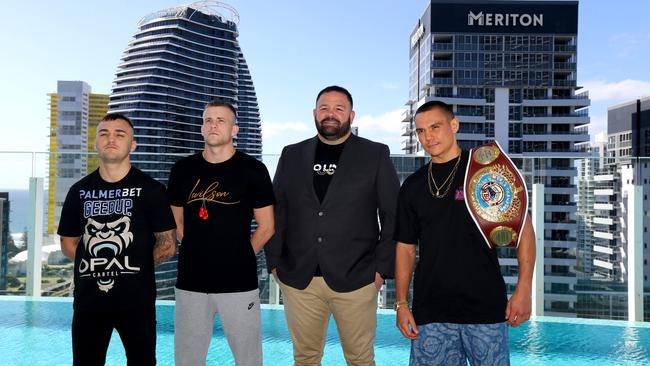
“There’s issues around how culturally safe those spaces are to move into leadership, as the only person in a leadership position as a First Nations person, and the burden the places upon you.
“You become the person who has to do all the education on cultural safety around racism and barriers, as well as actually doing your job as a coach.
“They becomes high burnout roles, without support to transition and support while you’re in the role, it becomes too challenging and difficult.
“And for indigenous women, those issues are amplified.
“The pathways are not there, coaching and leadership are not promoted to indigenous players as options, nor how to support that process.
“The structures are not really there across a lot of major sporting codes, there’s obviously such rich talent across indigenous athletes in so many sports, more should be able to transition.
“It’s a considerable problem that players aren’t able to find a pathway.”
Is there a fix?
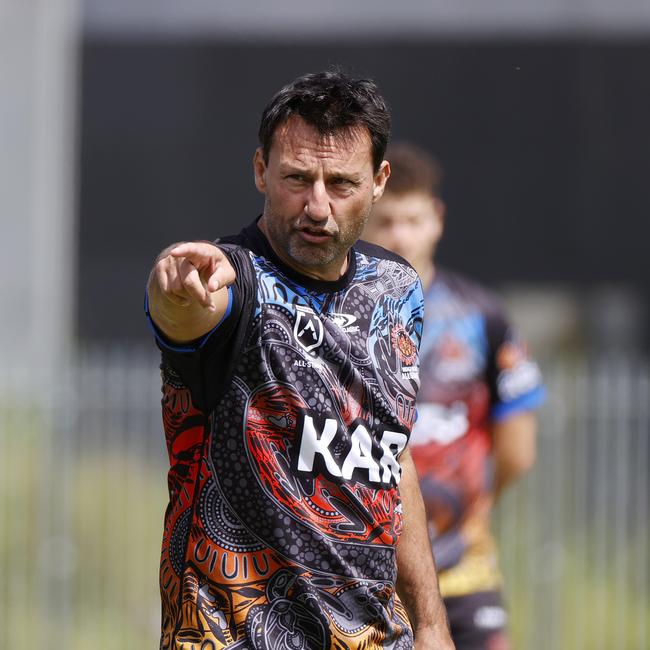
“It requires a fundamental shift, and when we’re discussing coaching and leadership, it’s also about power,” Professor Jeanes said.
“It is a position of privilege, who are you going to let into those positions of privilege to really change the game? There is resistance there in some quarters as to who gets let in.
“There’s examples internationally, there’s the lack of black managers within the English Premier League, we’ve seen it play out in all different contexts internationally, the same issues. It would be great to see some change.
“As indigenous coaches move into positions, they’ll need allies and mentors, recognising that because of the way the system is at the moment indigenous coaches will face greater scrutiny, their achievements will be monitored closely.
“Putting a system in place to help coaches manage that is vital, so they feel supported, and feel like as soon as the performance of the team they’re working with slide, they’re not going to lose their job.
“At the moment, the coaching environment isn’t that appealing to move into.”
While each NRLW team has indigenous people on their coaching staff, including Dragons head coach Jamie Soward and Brisbane head coach Scott Prince, NRL clubs are scarce.
The NRL does run youth leadership programs for indigenous teens, hoping that in years to come they’ll emerge as solid candidates for boardroom roles.
League legend and Wiradjuri man Laurie Daley broke the mould, coaching the NSW State of Origin team from 2013-17, and wants the NRL to adopt a mandate on hiring indigenous coaches and staff.
“I think the NRL needs to fund indigenous employees at each club, allowing them the exposure to grow,” Daley said.
“I would like to see them have one person in the front office, and one in the coaching staff. It may in SG Ball or Jersey Flegg, just giving them a pathway to learn and grow.
“You can’t be what you can’t see, as the old adage goes. There are a lot of indigenous kids who don’t think about coaching because they don’t see any to aspire to.
“You just need an opportunity, and for people to believe in you. If you’ve got the right mentors you can go a long way.
“I am sure there are a lot of indigenous coaches that want to get an opportunity, but don’t want that knock-back feeling, being told, ‘We’re going in another direction or down another path’.
“That can be hard to take, and that can be the reason some people don’t want to put themselves out there for these roles.
“But if there was a policy where each club had to have an indigenous coach in their systems, I feel it would give them the best chance to learn and understand what it takes to become a head coach.
“My advice for indigenous players who are thinking of becoming coaches is to learn, gain as much knowledge as you can, understand the game and understand people.
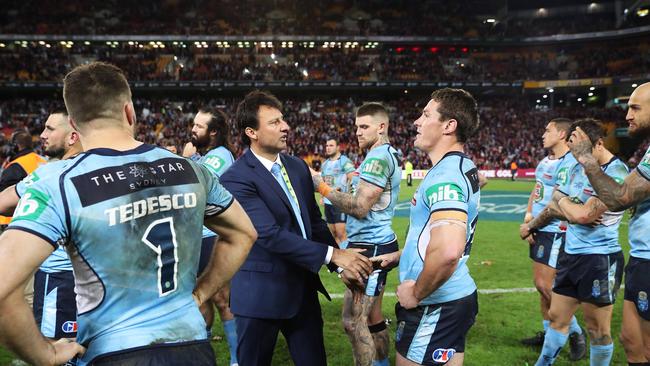
“Man-management is such an important part of coaching, so you’ve got to learn how to manage people.”
Rose supports the idea, but is wary.
“It depends whether the clubs support it, because they’re the ones who will make the decisions as to whether that person is a success or failure, will decide whether that mandated role is putting out witches hats and filling up drink bottles or they’re being involved in the actual coaching process,” Rose said.
“And the same in the office. You can say we’ve got this mandated indigenous role, but is that person going to be involved in decision-making at the club to make it a better place, or are they going to be handed admin duties, ‘Here, you go and do some community work’.
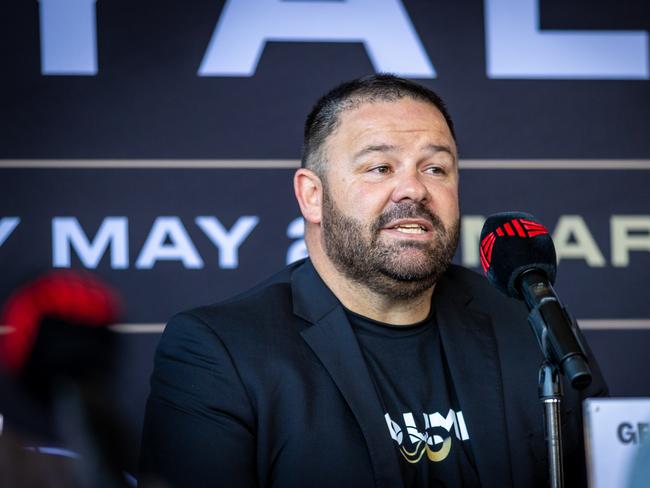
“We can prove our worth if given the opportunity. You give us that, we’ll show you what we’re capable of.
“I do understand it’s very hard to get those opportunities in rugby league, but I also believe that some of the smartest players to have ever played the game are Aboriginal and Torres Strait Islander.
“Right now I believe Cody Walker is the smartest man on the footy field. We often get classed as having natural ability, natural instinct, but he’s a very smart man who reads rugby league better than anybody else on the field, that’s why he makes the right decisions.
“If he doesn’t go on to have a 10-year, 20-year career as a rugby league coach, I’ll be very shocked because of what he provides to the game.”
Daley hopes more can follow his path.
“I got into coaching because I was still in love with the game and there was an opportunity to coach [NSW] Country,” he said. “I jumped at it because I wanted to give back, for me it was about passing on my knowledge and experience so I could hopefully help just one person become a better man or a better footballer.
“Once I was in Country, the opportunity came for me to step up to coach NSW. I was in the right spot at the right time, and had people believing in me.”
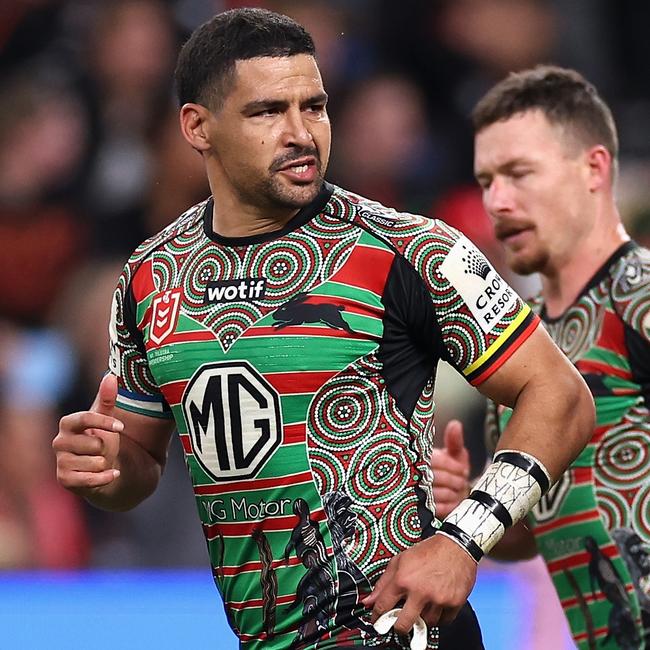
Addo-Carr, who has starred for NSW and Australia, is tired of being thought of as breaking a stereotype.
“When I was a young fella, everyone thought Aboriginals were drunks and drug addicts, they would paint a picture on you already, the hardest thing was getting looked at as something you’re not,” Addo-Carr said.
“The racial abuse, I think every black person goes through it.
“For us, it’s now about teaching the younger generation that it’s not OK, giving them the picture about black people and indigenous people especially. Because where I grew up, Redfern, everyone thought it was just drugs and alcohol.
“There were junkies, but there were a lot of good people as well.”
Addo-Carr, 27, says clubs and corporations can flourish with indigenous leaders, if they’re given an understanding environment.
“A lot of support and a lot of love needs to be shown to indigenous people in those industries,” Addo-Carr said.
“I am very comfortable being around indigenous people, but around three or four randoms I’m a bit shy, we call it shame.
“There is so much trauma we go through, and that our parents and grandparents have passed on to us, you just feel it, the frustration, it trickles down to us.
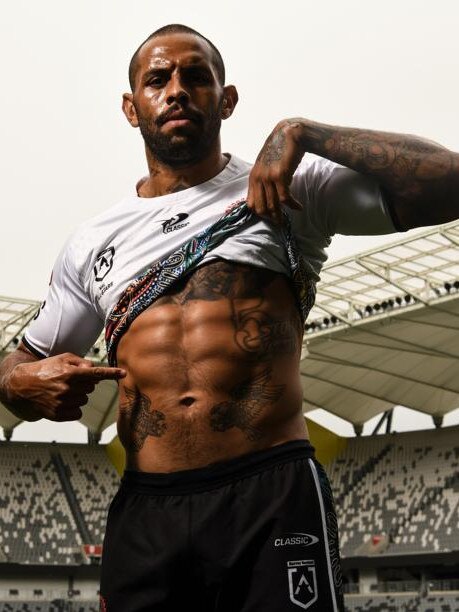
“We definitely have the talent and ability, we just need a lot of support and love will help us become the people we want to be.
“Bringing us in will bring Australia together.
“It’s sad what happened back in the day, but I feel like we’re heading in right direction.
“Our culture got taken away from us, we are still trying to find our feet. We are culturally strong, but I’d still like to know my language, that got taken away from us as well, we’ve got to learn our language all over again.
“I can’t sit down and have a conversation with another person that knows our language. It’s all in the books in libraries and TAFEs, there’s more than 400 tribes in Australia with their own dialects, that’s hard.
“Most indigenous cultures have one language, we have 400. That’s the hardest thing at the moment.
“Being part of a culture that’s been around for 60,000 years plus is something I am so proud of, and whoever lives in this country should be proud because you’re part of our story as well.
“We welcome everyone with open arms, that is what our culture is all about; respect, and love.”
Across the AFL and AFL Women’s competitions, there are 10 indigenous coaches, including assistant coaches Xavier Clarke (Richmond) and Travis Varcoe (Western Bulldogs).
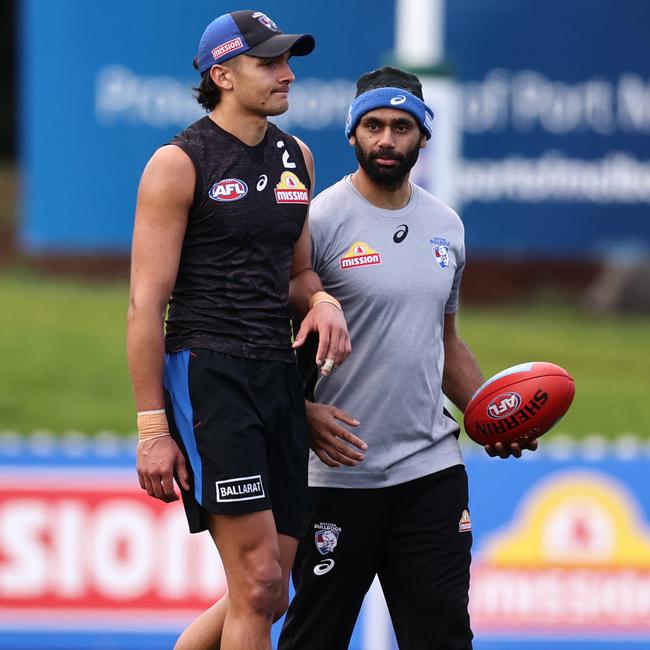
The presence makes up a minor percentage of the total number of coaches across the 18 clubs.
The AFL’s general manager of inclusion and policy, Tanya Hosch, said in 2021 that this is a number she would like to see increase, but “that until a large number of Aboriginal and Torres Strait Islander people indicate that coaching is something they want, it‘s not going to be one of my highest priorities”.
According to data obtained from the league, three per cent of the AFL’s workforce is indigenous.
This includes one commission member and one executive team member (Hosch).
In a bid to increase the number of indigenous coaches in the competition, the league has also allowed provisions within the soft cap limit, with indigenous staff wages sitting outside the soft cap for football department spend.
The league also said its indigenous coaching pathway program “which facilitates entry into the AFL system” currently has one member taking part.
Another 14 indigenous coaches are employed via the clubs‘ next generation academy programs, state kickstart programs and national indigenous programs.
Rose, who completed a Master of Commerce degree at Sydney University and now negotiates multimillion dollar fights with the world’s biggest fight promoters, wants his people empowered to make their own moves.
“Corporations should not be afraid to offer opportunities to indigenous people, and the other thing is for us, as indigenous people, not to be afraid to push our own path,” Rose said.
“If the path is blocked for us, don’t be afraid of forging a path for ourselves at a different company. And then come back and take over.”
More Coverage
Originally published as Indigenous Sport Month: Time for footy codes to create opportunity for Indigenous coaches




